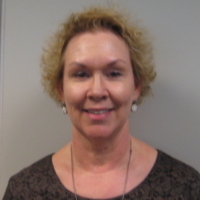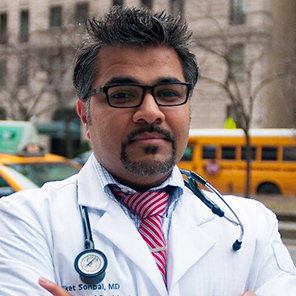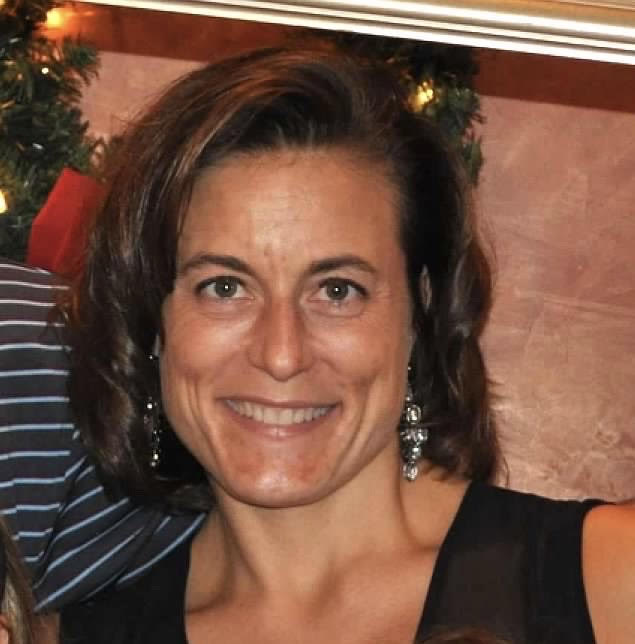
Medgeeks
Primary Care Medicine Essentials
This is specifically for the practicing clinician (PA or NP) working primary care medicine.
We have three areas of focus:
Non-clinical (documentation, learning to communicate with patients, preventing mistakes, etc)
Clinical (diagnosing, workup, management, etc)
Life as a clinician (increasing confidence, preventing burnout, work-life balance, etc)
It’s only when we address all three that we can truly be fulfilled as a clinician.
There’s a big difference between school and practice. When you were in school, we often spoke about what’s done first, because the order was important.
But, in real life, that’s not always the case. Often times, a multitude of things are done all at once.
On an exam, there is typically one best answer and it must be clear-cut; it must be easy enough to answer the question in 60 seconds. In real life, patients have multiple diseases, which can each cause their own set of symptoms. If you couple that with depression and anxiety, then arriving at a diagnosis starts to become much more of a challenge.
Diseases can be difficult to diagnose and/or differentiate in real life as things aren’t as clear-cut as they were presented in your studies.
This is why we like to shift our focus away from textbook exam-type presentations, and instead focus on real-world clinical scenarios.
We move away from the high-yield medicine model, to tackle real-world situations and the thinking required of a primary care clinician.
The problem is that the stakes are much higher, and as you’ll soon find out, learning on the job without structure can actually slow down your progress.
There’s a lot you don’t think about until you’ve been in the game for a few years. In fact, there’s a lot you don’t even know that you should know…until you’ve been working primary care medicine for years.
It’s because of this, we at Medgeeks collaboratively found a better way to truly master the concepts you’re expected to know as a practicing clinician.
Curriculum
We’ve created a structured primary care medicine program to help get you up to speed with the most commonly encountered problems in practice.
This is self-paced so you can go through the program on your time. The curriculum is comprised of 100 hours of training (video, audio, & slides) every primary care medicine clinician needs to know. After completion, you’ll be awarded 50 CAT 1 CME credits that are accepted by AAPA, AANP, and ANCC.
- Mental frameworks to accelerate learning
- The clinician mindset
- Connecting with patients
- Learning to be successful in medicine
- Why clinicians burnout
Total: 3 hours 20 min
- Documentation in primary care
- Coding Part 1
- Coding Part 2
- Legal documentation
- Controlled drug agreements and urine drug screening
Total: 4 hours 20 min
- The diagnostic process
- The physical exam
- General observation
- Mental status
- Abdominal exam
- Pulmonary exam
- HEENT exam
- Cardiovascular exam
- Vascular exam
- Musculoskeletal exam
- Neurological exam
Total: 6 hours 50 min
- Preventative medicine in primary care
- The well child exam
- Vaccinations
- Pre-operative clearance
Total: 4 hours 15 min
- Acute cough
- Low back pain
- Joint pain
- Dermatology (common skin conditions)
Total: 5 hours
- Chest pain
- Dyspnea
- Weakness and dizziness
- Abdominal pain and constipation
- Eye complaints
- Abnormal uterine bleeding (non-pregnant)
- Microhematuria
Total: 10 hours 50 min
- Headache
- Rheumatology pearls
- Unintended weight loss
- Summer rashes
- Insect & Arthropod Bites/Stings
Total: 5 hours 20 min
- Hypertension
- Anxiety and depression
- Urinary tract infection and pyelonephritis
- Type 2 diabetes
- Obesity
- Hypothyroidism
- Hyperthyroidism
- Hypertriglyceremia
- Peripheral neuropathy and restless leg syndrome
- Acute kidney injury and chronic kidney disease
Total: 12 hours 30 min
- Secondary hypertension
- Upper respiratory infections and otitis media
- Viral exanthems
- Non-alcoholic fatty liver disease
- Gout
- Osteoporosis
- PCOS
- Hypogonadism
- Fibromyalgia
Total: 9 hours 25 min
- Medication monitoring and lab interpretation
- Polypharmacy and deprescribing
- New type 2 diabetes treatments
- Topical steroids
- The Menstrual Cycle and
Menopause Hormone Replacement
Therapy - Birth Control and STIs
- HIV Pre-exposure prophylaxis
- Commonly used psych medications
- Pain management
Total: 11 hours 20 min
- Procedures in primary care part 1
- Procedures in primary care part 2
- Pulmonary Function Testing
Total: 4 hours
- Case Study: Is it the Heart or the Kidneys?
- Case Study: “Is it a False Pregnancy?”
- An interesting case of abdominal pain
- Fatigue, Dizziness and Low Back Pain Case Studies
Total: 5 hours
- Case studies: Difficult patient encounters
- Critical Thinking Skills: A Case Study on Incidentalomas and Primary Hyperaldosteronism
Total: 3 hours
- Primary care case studies part 1
- Primary care case studies part 2
- Primary care case studies part 3
Total: 4 hours 30 min
- Handling referrals
- Difficult patients and patient deaths
- Advanced care planning
- Alcohol use
- Smoking cessation
Total: 5 hours 20 min
- Lymphadenopathy
- Incidentalomas
- In-Flight Medical Emergencies
- Radiology Terminology Explained
Total: 4 hours 30 min
Get your questions answered.
Although it’s a self-paced program, our instructors make themselves available Monday – Friday to answer any questions you may have. You also have the option to join our instructors on Zoom should you need additional guidance at no additional charge.
Monthly updates.
Every month we make updates to the curriculum to ensure we stay current. You’ll get immediate access to every update at no additional charge.
Your Instructors

Clay Walker PA-C
A graduate of the Southern Illinois University School of Medicine, Physician Assistant Program class of 2016. He currently works primary care and is the lead PA running the primary care residency program at Mayo Clinic.

Dr. Judy Finney
Judy Finney, M.D. graduated from the Michigan State University School of Medicine in the top 5% of her class.
She did her residency in internal medicine with Michigan State University Clinical Center and did a fellowship in cardiovascular disease at Ingham Regional Medical Center.
She also taught at Midwestern University School of Medicine.
From 2001 – 2008 she was a clinical professor taking on one student at a time during their 3rd year clinical cardiology rotation to really help them excel. During that time, she also taught EKGs, Heart Sounds, and Murmurs to everyone in their cardiology rotation.
From 2008-2011 Dr. Finney was assistant professor for the school of Medicine. During this time she re-wrote all objectives for the internal medicine rotation and created a database of questions they could use for testing during the internal medicine rotation.

Dr. Niket Sonpal
Niket Sonpal, M.D. practices internal medicine and is assistant professor of medicine at Touro Osteopathic School of Medicine, associate program director for the internal medicine residency program at Brookdale University hospital, director of Medical education at Picmonic, and chief strategy officer at Medquest Test Prep.

Liticia Arthur PA-C
Liticia graduated from the University of Kentucky in 1999. She’s worked most of her career in family medicine but has also worked in research, internal medicine, education, pharmaceuticals, and most recently the urgent care/covid clinic.
Primary Care Medicine Essentials
What Clients Are Saying
John C., FNP
“Even my boss gave me credit. I had my evaluation, I think it was my 45 day, and they’re very happy, they haven’t had any complaints. I’ve seen 220 patients. They’ve been very happy with my productivity and my confidence level is so much better. They mentioned Medgeeks in my evaluation, that they were supportive and happy to see my improvement. They gave me credit and I see this as being a real positive for me.”
Alexandra D., NP
“I think having the resources right there, being able to go on the app and do a search is the most helpful. There are a lot of things available but this is focused on primary care and I know I can go there and get the answers I need, so it is a big benefit.
I feel that I have improved a lot. I am more confident in my judgments and I know when to ask questions when I’m not comfortable. I’ve improved a lot from when I started.”
Heather B., PA-C
“I was in a bad space before I started all this. So now I’m leaving on time and I’m closing my charts. It’s been a good feeling. When I leave I can leave work… I know my patients have been taken care of, I documented everything, and I can follow up better with patients when I’m keeping myself organized.”
Alexander Y., NP
“They (the lectures) have been very helpful. The first two weeks changing the mindset was really helpful. It’s really nice to hear from somebody that has experience in primary care, to listen to their thought processes, it’s very helpful. I’m very happy.”
Nicole H., PA-C
“I think it just helps my headspace because being in the program has helped me gauge that… I feel at least mentally in a better headspace and clinically as well, with the additional experience and brushing up with the lectures… I feel at last like I’m above water now.”
Danyelle P., FNP
“The lectures and the learning have been the most helpful, diving into things that were glossed over or I didn’t know enough to keep it in my brain.”
George D., FNP
“I think I’ve been doing really well. Each day’s a new day and I’m learning more and more every day, seeing more patients this week than I did last week and I’m feeling a lot more comfortable. I’m enjoying the course and I love the weekly sessions. It’s a good opportunity to bounce things off people.
I’ve been reading a lot more and trying to get my tool belt filled with all this knowledge from you guys. I’m so glad that I decided to do this because I think it’s really helped me with the transition. I think it’s really important for transition NPs to do something like this.”
Heather L., PA-C
“The mindset stuff was one of the most helpful things. The structured curriculum and touching on all the main primary care medicine aspects was helpful as a new grad as well, but I think the mindset lectures hit home and got me thinking about things I wasn’t before and helped boost confidence. That was huge for me.”
Jorge M., NP
“Access to the videos and being able to replay it when I want to replay it, watch it, listen to it, the flexibility of the format, I like it…My speed has gotten a lot better. Prescribing and treatments of chronic diseases has gotten better…”
Kanani E., PA-C
“It was nice to have those videos ready and I’m trying to watch them on my way to places and if the kids are watching tv while I clean up dinner I’m trying to have the videos on. I will say it’s really cool because I felt like I’ve gained a pearl from each thing I’ve done so that’s really rewarding…”